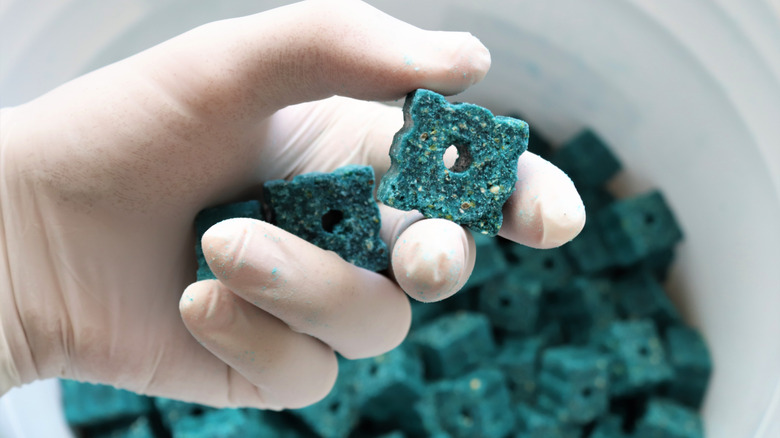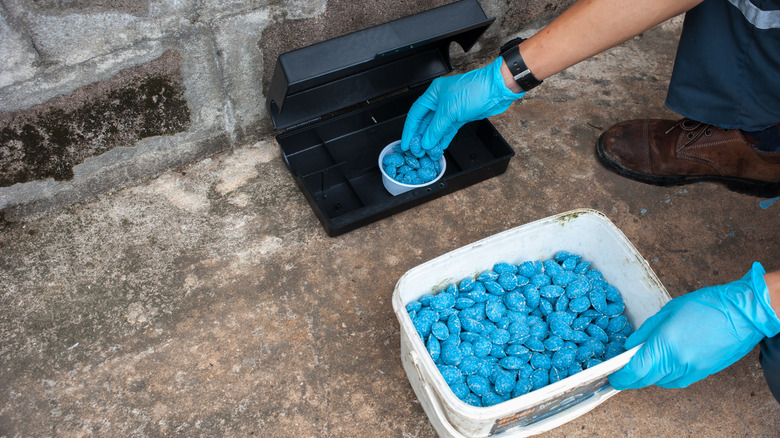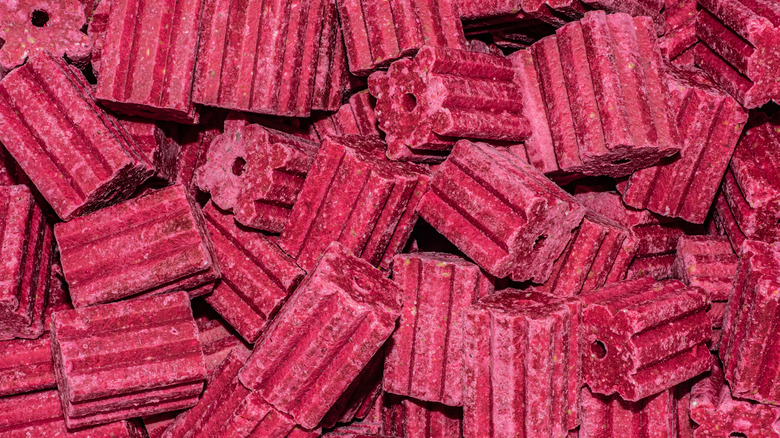The Right Way To Dispose Of Rat Poison
Rat poison, officially referred to as rodenticides, is a toxic chemical not only designed for local rodents, but also for the environment, local wildlife, and more. The poison, often found in little cubes, is added to a rat trap. If there is leftover poison after the rat problem has been solved, many people opt to simply throw it out with their normal household garbage. This is a harmful and unsafe practice and should be avoided, warns the British Columbia Ministry of Environment and Climate Change Strategy.
The chemicals in rat poison, which include warfarin, diphacinone, difethialone, chlorophacinone, and brodifacoum, among others, stop blood from clotting like normal, which results in internal bleeding and, subsequently, death. If rat poison is ingested by local wildlife or curious pets, the result will likely be deadly. Different types of rat poisons have different side effects. When accidentally ingested by humans, these side effects can often be mistaken for other, typically harmless illnesses, leading people to avoid seeking immediate medical attention (via Verywell Health). Needless to say, this can be very dangerous and is why it is incredibly important for you to know how to properly dispose of rat poison after use.
Recycle through pest control
If you simply didn't use all of your rat poison, decided to trap your local rodents peacefully, or have extra rat poison for any other reason, there's no need to dispose of it in the first place. Ask your neighbors or friends first and foremost if they're in need of the leftover pellets. Do this in accordance with local laws, some of which may prohibit the distribution of rat poison.
You can also call your local pest control or waste management center to get instructions on how to turn in leftover rat poison, advises Do It Yourself. Waste companies can give you advice on packaging the pellets and when and where to drop them off, while some may even potentially offer pick-up services. Similarly, British Columbia says you can try your luck with your local pest control agency, which will often accept it in its original packaging and sell it as a surplus product in a regulated manner.
Contact the supplier
If local waste management or pest control agencies won't accept the leftover rat poison, look at the product's packaging. The label should have instructions about safe disposal, which will likely advise you to contact the manufacturer, as per British Columbia. They will talk you through the process of disposal, or, alternatively, how to return the product back to them. The store you purchased the poison from may be certified to take it back as well.
If none of the previous methods pan out, don't toss out the excess rodenticides with your trash. Instead, call either an incineration service or a hazardous waste disposal service (via Do It Yourself). Do not incinerate rat poison yourself — releasing the toxic fumes into the air should only be done in a regulated environment, which is why some incineration companies won't accept rat poison. A hazardous waste disposal service should accept the poison, though.


